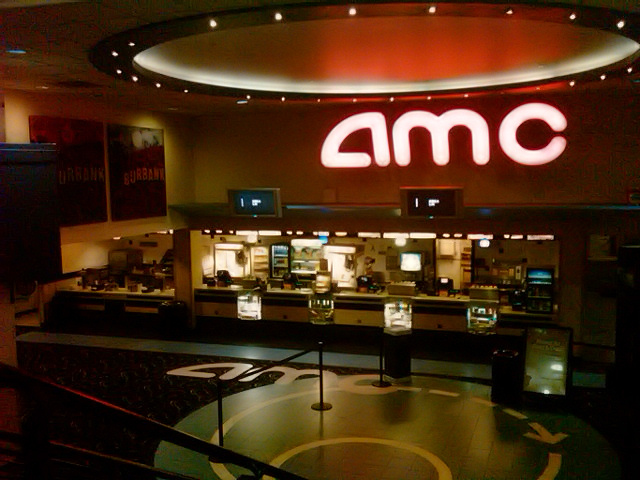American Multi-Chattel Human Resources
At one point some manager somewhere went on a rebellious bender. For maybe 6 weeks, he sent out a self-published AMC newsletter to all AMC fax numbers. It was titled “Oppression” and until the guy got caught and fired, he spent those weeks giving his honest opinion of AMC’s regard for personnel. One of his straw villains was Crage Erdgemann, who would close out the newsletters by declaring to employees- the readership – “you’re all CHATTEL!” Now, Crage was based on a real guy, and you really did get that CHATTEL! vibe from Craig from time to time. But still that writer was not a happy employee.
I was staff for 3 months, staff lead for 9 months, projection for three months, projection supervisor for 2 years. Then management for what seemed like forever.
The challenge during those staff months was one of timing. I started getting subbed in for lead shifts after maybe a month or so, which really pissed off some of the veterans. So getting results from people who didn’t like me (which is really what all of management is) was a puzzle that got attention right out of the gate. All it took was work really. Yeah I was getting special treatment from the managers, but I was also the fastest with a blower in those amphitheaters, as fast as anyone on register, and breaking a sweat as much as anyone else. By the time they made it official folks had gotten used to the idea, but managing different personalities was never not a priority.
As projection lead I was responsible for training new operators and writing the booth staff schedule. The GM at the time didn’t even realize but he had an hourly staff guy on his roster who was writing his own schedules. He didn’t realize because it was simply being handled. That summer was scratch-free in the booth because we had the right folks in the right place. One of the operators was giving his girlfriend a quick tour of the booth (big no-no, but I was a merciful tyrant), and introduced me as his boss, which blew my mind just a little bit in that moment. Not by my name or any actual AMC-delegated authority, but by what my work did for his.
I came up through projection and my antisocial nature was well-known, but still I spent more than half of my theater management years in HR. So almost by default I have a decent handful of highlights in HR. They all come from the same place as those early moments, finding ways to make chaotic personalities produce something useful by bouncing their chaos off of one another just so.

AMC’s measure of payroll efficiency on the reports was Payroll/% Revenue. The generic Stan Durwood Theater Math we’d all been taught held that theatre payroll’s target was the 10% mark. Management bonuses were frequently pegged to how well sites did on Pay/% compared to budget. Nationwide, that was roughly the average. Even there in Burbank, the 14 and 8-plex percentages averaged out to about 10%. While I was scheduling at the North 6, we got that number down to 6.2%. In a company with hundreds of sites and thousands of screens, we tied for the lead across the entire company for my entire run. There were some tools available, a spreadsheet or two that I developed out over the years to map out hours and coverage. But it also came down to those hours spent on the roof of the building, enjoying the sunset and figuring out who should be the mid in concession this day, or opening box on that day.
And credit here is an iffy area, as certainly everything that was actually achieved was a result of the work done by hundreds of underpaid staff through that time. But the result was higher before I went into scheduling, the guests stayed happier at the 6 than they were at the 14 or the 8, and we were able to maintain it for months. So yes I think there’s something to the art/science of putting the right people in the right place and steering things from there.
While I was the GM at Sherman Oaks, we knew the location was gonna close. Since the moment AMC had bought the buildings the clock was ticking on their sale. Because they were just that slow. So we used that slow time and I put it to the managers to pick up as much as they could so they could go back into the field with much stronger arguments to make for bigger raises than AMC was going to want to give.
At Century City, one of the Senior Managers (“Flash”, in a story that has been previously alluded to) came up with a staff mentorship program. The purpose of the program was so that Flash could say on her own behalf how she developed a staff mentorship program. I decided to use it for the benefit of my assigned crew anyway. For the two months the program was in place, I was the only one the building regularly meeting with my people. They were the only ones bouncing into different roles on the schedule, because they were the only ones who had an advocate in the scheduling process. (Flash meanwhile had assigned all the senior leadership staff to her own mentorship group. Didn’t meet with any of them more than once. Whole different story.)

AMC’s Human Resources operation was overall a very structured and developed set of processes. If you had the ability to learn, they would train you not only how to run a movie theatre, but how to run everything inside. Classroom sessions on scheduling, forecasting, HR laws, facilities management, marketing. The amount of knowledge available was enough to make you successful in a whole handful of operations across multiple industries. It was absolutely resourceful. Not very human at all, but resourceful.